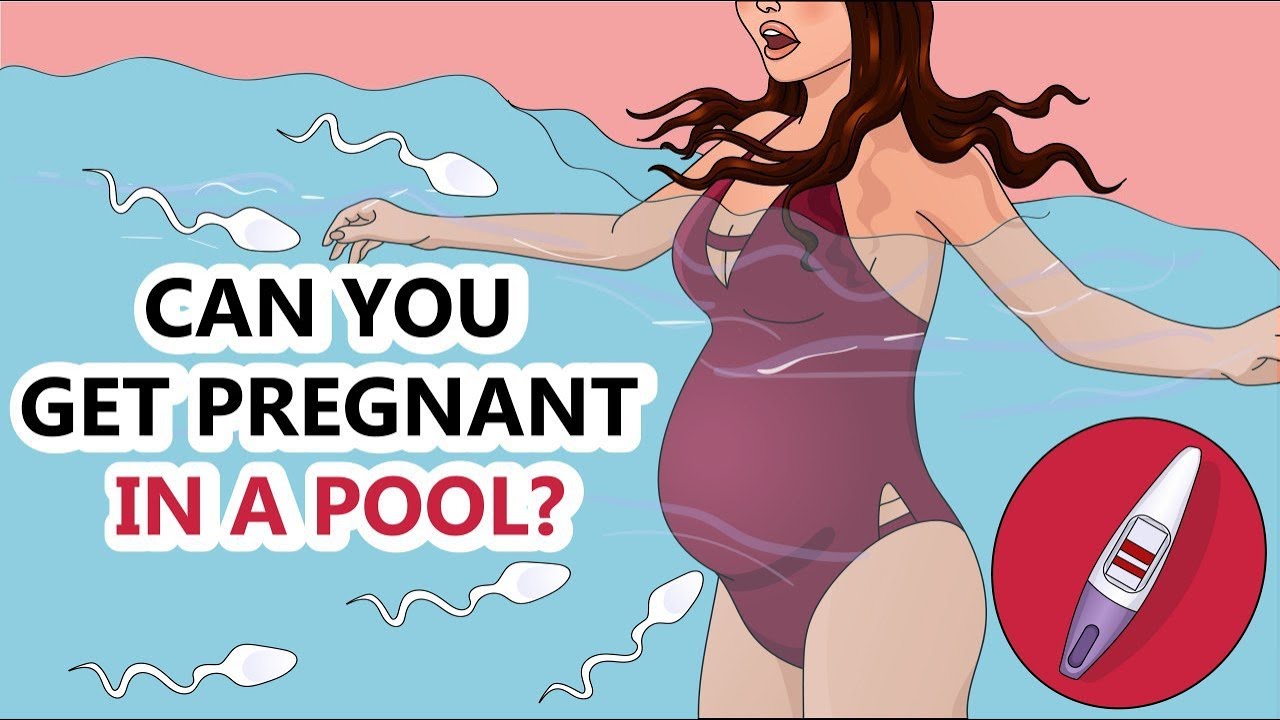Understanding the Myth: Does Chlorine Kill Sperm?
There has been a persistent myth circulating for years about the ability of chlorine to kill sperm. While it's true that chlorine is widely recognized for its disinfecting properties, it's essential to separate fact from fiction when it comes to its potential effect on sperm viability.

Chlorine and Sperm: Dispelling the Misconceptions
Contrary to popular belief, chlorine does not kill sperm instantly upon contact. Sperm are resilient cells with a heightened ability to withstand harsh environments. However, exposure to certain substances, including chlorine, can ultimately affect their motility and reproductive potential.
When semen or sperm come into contact with chlorine, whether in swimming pools, hot tubs, or other chlorinated water sources, the chlorine can act as an irritant. This irritation can disrupt the pH balance and natural lubrication of the reproductive system, potentially impairing sperm movement and longevity.
Additionally, the presence of chlorine in water can generate reactive substances called free radicals. These free radicals have the potential to damage sperm cells and their DNA, leading to reduced sperm quality and fertility.
Understanding Sperm's Resilience
The myth that chlorine can instantly kill sperm may have originated from the knowledge that sperm are highly sensitive to changes in their environment. Temperature, pH levels, and exposure to foreign substances can influence their viability.
Sperm exposed to chlorine may experience a decline in motility, which is crucial for successful fertilization. However, the extent of this decline varies based on various factors, such as the concentration of chlorine, duration of exposure, and individual differences among men.
Protecting Sperm Health
If you're concerned about the potential impact of chlorine on sperm health, follow these tips to minimize any possible adverse effects:
- Avoid spending prolonged periods in highly chlorinated water, especially if you and your partner are trying to conceive.
- Use barrier methods of contraception, such as condoms, during sexual activities in chlorinated water bodies.
- Ensure proper hygiene and shower before and after swimming or using a hot tub to remove any chlorine residue from your body.
- Consider fertility-friendly lubricants if trying to conceive, as they can provide a protective barrier against potential irritants.
While chlorine may not necessarily kill sperm outright, it can have a negative impact on their motility and reproductive potential. By taking preventive measures and maintaining optimal sperm health, you can increase your chances of successful conception.
In summary, the myth that chlorine kills sperm is just that – a myth. While chlorine exposure may have some negative effects on sperm motility, it is essential to maintain perspective and understand that the impact is not instantaneous or permanent.
Related FAQs about does chlorine kill sperm
Can chlorine kill sperm instantly?
No, chlorine does not kill sperm instantly upon contact. Sperm are resilient cells, but exposure to chlorine can affect their motility and reproductive potential.
Does exposure to chlorine affect sperm quality?
Yes, exposure to chlorine can potentially damage sperm cells and their DNA due to the generation of reactive substances called free radicals. This can lead to reduced sperm quality and fertility.
Can swimming in chlorinated water cause infertility?
Swimming in chlorinated water, by itself, is not a direct cause of infertility. However, prolonged exposure to highly chlorinated water can potentially impact sperm motility and fertility in men.
What can be done to protect sperm from the effects of chlorine?
To minimize any potential adverse effects, it is advised to avoid spending prolonged periods in highly chlorinated water. Using barrier methods of contraception, practicing good hygiene, and considering fertility-friendly lubricants are also recommended.
Is it safe to swim in chlorinated water while trying to conceive?
While swimming in chlorinated water poses low risks, it is advisable to take caution if you and your partner are actively trying to conceive. Limiting exposure and following preventive measures can help reduce any potential impact on sperm health.
Glossary about does chlorine kill sperm
1. Chlorine: Chlorine is a chemical element with the symbol Cl and atomic number 17. It is widely used as a disinfectant and for water treatment due to its strong oxidizing properties.
2. Sperm: Sperm is the male reproductive cell involved in sexual reproduction. It is specialized for fertilization of an egg and plays a vital role in reproduction.
3. pH: pH is a measure of the acidity or alkalinity of a solution. It is a logarithmic scale ranging from 0 to 14, where values below 7 indicate acidity and values above 7 indicate alkalinity.
4. Motility: Motility refers to the ability of sperm cells to move and swim actively. It is an essential characteristic for successful fertilization.
5. Viability: Viability refers to the ability of a cell to function, survive, and potentially fulfill its role. In the context of sperm, viability indicates the ability of sperm cells to remain alive and retain their reproductive potential.
6. DNA: DNA, short for deoxyribonucleic acid, is a molecule that carries the genetic instructions for the development, functioning, and reproduction of all known living organisms.
7. Free Radicals: Free radicals are highly reactive molecules that contain unpaired electrons. They can damage cells, including sperm cells, by causing oxidative stress and disrupting their normal functioning.
8. Contraception: Contraception refers to methods or devices used to prevent pregnancy. It involves the deliberate prevention of sperm from fertilizing an egg, thus preventing conception.
9. Conceive: Conceive means to successfully become pregnant or to initiate the process of pregnancy. It involves the fertilization of an egg by a sperm, leading to the development of an embryo.
10. Fertility: Fertility refers to the ability to reproduce and conceive offspring. In the context of humans, it specifically relates to the ability to conceive and sustain a successful pregnancy.
